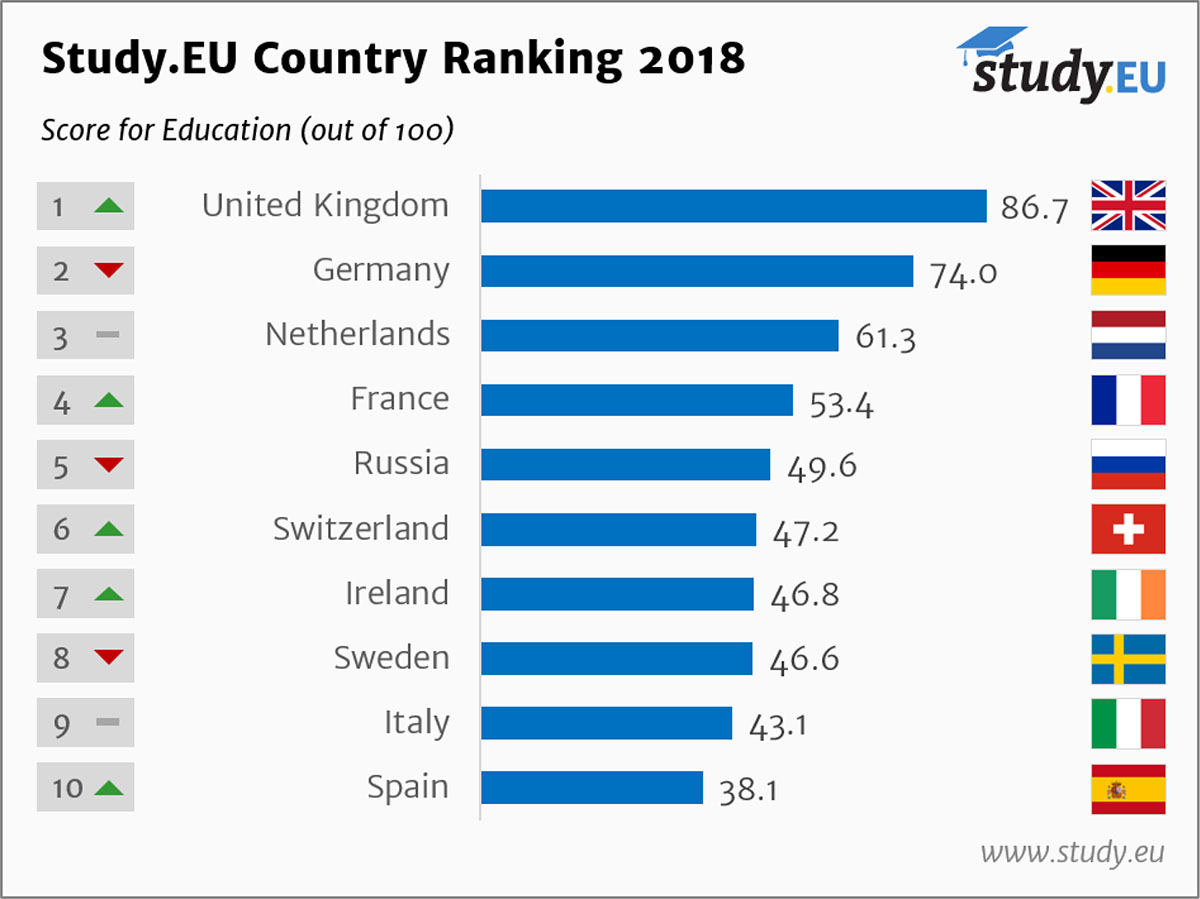Did you know that over 1.4 million students from around the world came to Europe in 2012 for their higher education and the numbers are growing every year. With 1000s of world-class universities, research centres and higher education institutions, Europe is the place to be.
Here are 8 good reasons to choose Europe for your higher education:
- Careers: Shape your future
Want to get ahead in your career? Many employers worldwide actively seek or value an international study experience when recruiting. By studying here, you will gain the skills, knowledge and experience that employers value. With strong international business, creative and research sectors, Europe is a great place to build your career.
- World-class education: Reach your full potential
World-leading universities, top facilities and inspirational teaching. in Europe, you’re at the centre of an international community with a passion for learning. What makes European universities so strong is the emphasis on creativity, innovation and support – helping you to reach your true potential.
- Languages: Learn in English or another leading global business language
There are 24 official languages in the European Union, but did you know that most countries across Europe offer study programmes in English too? You’ll also find programmes taught in other leading global business languages such as Spanish, French, German, Italian, Portuguese, Arabic and more.
- Support and friendship: Feel at home
Europe is a welcoming, friendly place for students from all around the world. Europe’s universities and colleges offer support and social activities to help you feel at home and happy. Europe is also a great place to live: 7 of the world’s 10 happiest countries are here!
- Cultural experience: Have a unique adventure
Studying in Europe is not just about lectures and libraries, it is also a once-in-a-lifetime chance to discover new countries and to discover yourself too! From the snowy north to the sun-soaked south, across Europe you will find breath-takingly beautiful landscapes, buzzing cities and vibrant cultures waiting for you.
- Scholarships and costs: Get value for money
European countries invest in their higher education systems to help make education affordable for students, whilst maintaining high quality standards. Across Europe, tuition fees and living costs compare very well to other study destinations. In fact, in some European countries, study programmes are free of charge! There are lots of scholarships and financial support options available too.
- Diversity: Study the way you want
The beauty of Europe is that it offers so much choice. With world-class universities, higher education institutions and research institutes, offering 100,000s of Bachelor’s Degree, Master’s Degree and PhD/Doctoral programmes, plus short-term study opportunities, you can choose the experience that suits you.
- Pioneering research: Be the best
Are you an ambitious researcher looking to boost your career? Europe offers you great opportunities. There were 1.58 million full time equivalent researchers in the EU-27 in 2009. Over the next decade, the European Union is actively looking to attract an additional 1 million researchers! Find out more about research jobs, funding and opportunitiesin Europe.



 Education: Top 10
Education: Top 10 To alleviate an inherent research bias in these rankings, we separate indicators of teaching quality as reported by the QS and THE rankings, effectively re-weighting these ranking factors (primarily staff-to-student ratios and the results of academic reputation surveys). The top countries here are Switzerland, the Netherlands and Germany.
To alleviate an inherent research bias in these rankings, we separate indicators of teaching quality as reported by the QS and THE rankings, effectively re-weighting these ranking factors (primarily staff-to-student ratios and the results of academic reputation surveys). The top countries here are Switzerland, the Netherlands and Germany. Not much has changed among the most affordable countries when compared to last year. Other than Poland,
Not much has changed among the most affordable countries when compared to last year. Other than Poland,  Reflecting requirements of both those groups, the score for “Life & Career” accounts for 25% of the total. In this dimension, we estimate the quality of life with indicators relevant to all students, as well as metrics that help judge the job market’s permeability for foreign graduates.
Reflecting requirements of both those groups, the score for “Life & Career” accounts for 25% of the total. In this dimension, we estimate the quality of life with indicators relevant to all students, as well as metrics that help judge the job market’s permeability for foreign graduates.